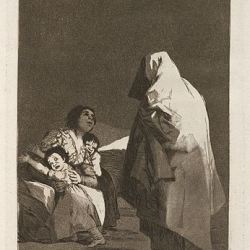The Boogyman, a vestige of many childhoods, was an amorphous monster. And while his outline was unclear, his purpose wasn’t; it was to frighten kids into obedience. It was a form of terror, bending children to the will of their all-knowing parents. That is why it is particularly disheartening to see the boogeyman appear in conversations about public health, specifically baby foods. And of course, Big Tobacco is the fiend called forth.
An article in World Nutrition invokes the specter of Big Tobacco and its great weaponized ‘playbook’, which is now considered so powerful and effective it's become mythology, while tobacco companies paid tens of billions in settlements because the playbook actually failed. But opponents of conventional baby food remain conspiratorial, claiming the baby food industry (Big Baby Food) has taken tactics from Big Tobacco to insidiously control and distort efforts at global breastfeeding. All in the name of corporate greed. Let’s be clear at the outset, breastfeeding is good; but some mothers cannot, for a range of reasons, and there have long been replacements. The authors invoke the International Code of Marketing of Breastmilk Substitutes which states:
“The Code advocates that infants be breastfed. If they are not breastfed the Code also advocates that infants be fed safely on the best available nutritional alternative. Breast-milk substitutes should be available when needed, but not be promoted.”
So right away, they create a logical disconnect. How can women know an alternative is available when no one is to make them aware of its existence? The authors then insist the food industry influences public health policy (of course) but that the acts of Big Baby Food have gone undocumented. Moreover because Big Tobacco and Big Baby Food share “ownership, investors, shareholders, experts, advisors, public relations and marketing companies” they learn from one another. In other words, if you're in any business not funded by the federal government you can't be trusted.
The authors create a casual review of sorts, admitting that it is neither exhaustive nor systematic, but is instead hand-picked examples where they say Big Baby Food used the tactics of Big Tobacco. When baby food manufacturers use “lobbying, political financing, and other communications to high-level policymakers,” and promote “voluntary self-regulation instead of legally binding legislation” it is characterized as hijacking the political and legislative process. But is there any other means of communicating with officials involved in public health policy? Dropping off a policy position in the mailbox doesn’t work.
When Big Baby Food participated in policy formation, it was deceptively framed as influencing “baby food marketing standard setting.” Isn’t the role of experts, from industry or science or, for that matter, breastfeeding advocacy groups, to influence standards? It's the only reason they exist.
Perhaps the most egregious accusation revolves around corporate social responsibility. The authors found that even attempts by corporations to ‘give back’ are attempting to manipulate public opinion, increase respectability, gain trust.
It seems that Big Baby Food is caught in a Catch-22. When they participate in setting regulation, they are accused of hijacking; when they engage in creating standards, it is using influence; and when they exercise corporate social responsibility, it is characterized as a shameless attempt to manipulate public opinion.
Why is it that when advocacy groups participate in setting standards, developing policy and helping make the world better, it is without sin, but the actions of baby food companies are so tainted? Could it be that the Big Tobacco boogyman is how advocacy groups eliminate the need for respectful conversation and disagreement? They simply turn their political opposition into a scary amorphous thing hiding in the closet.

